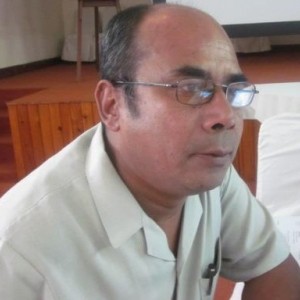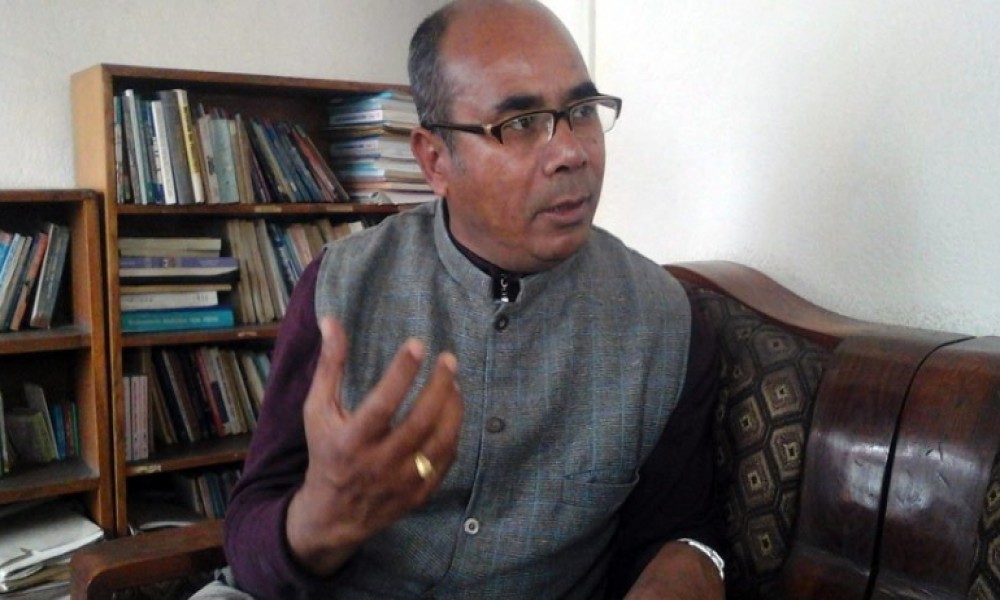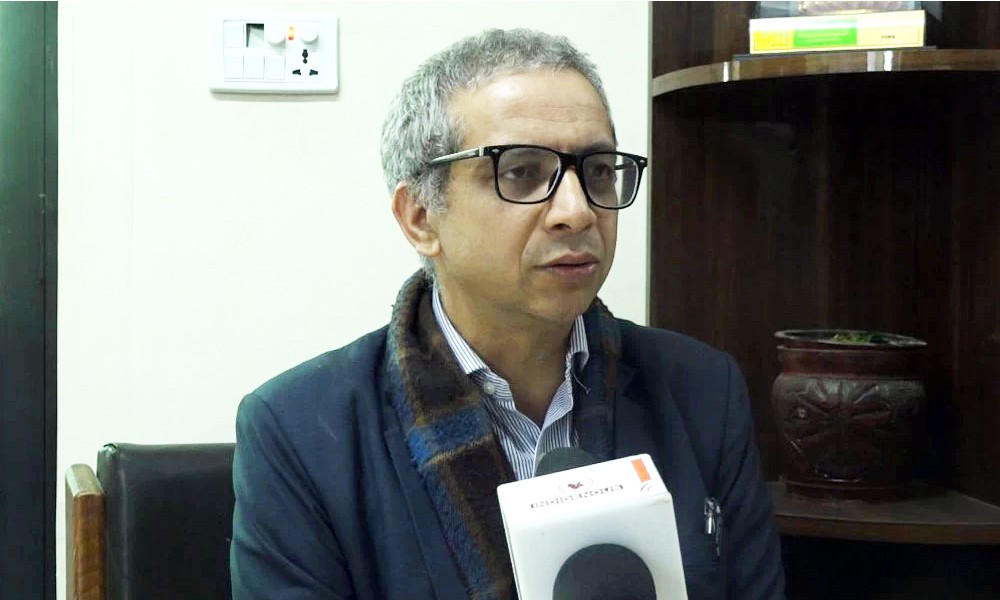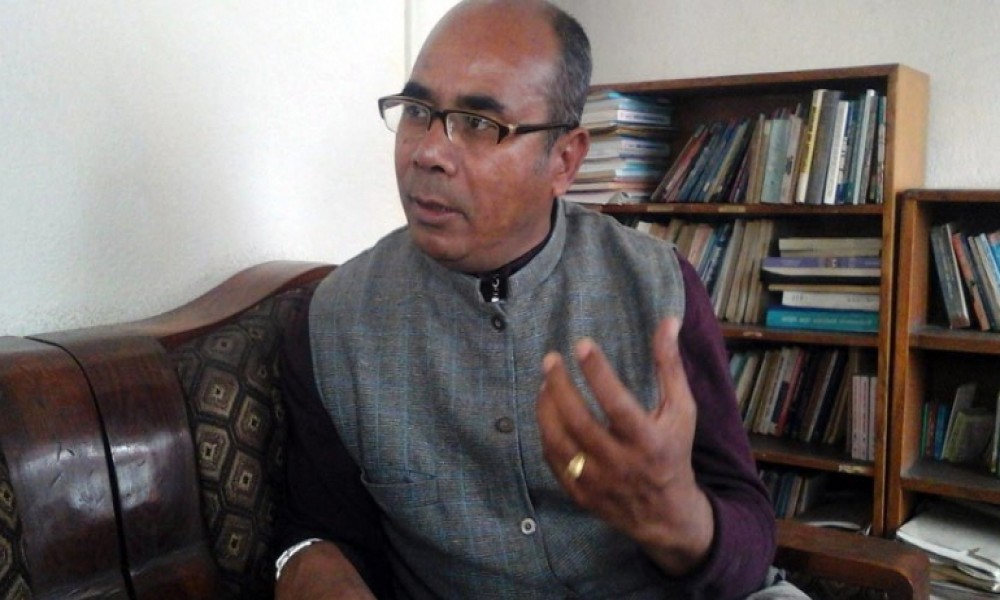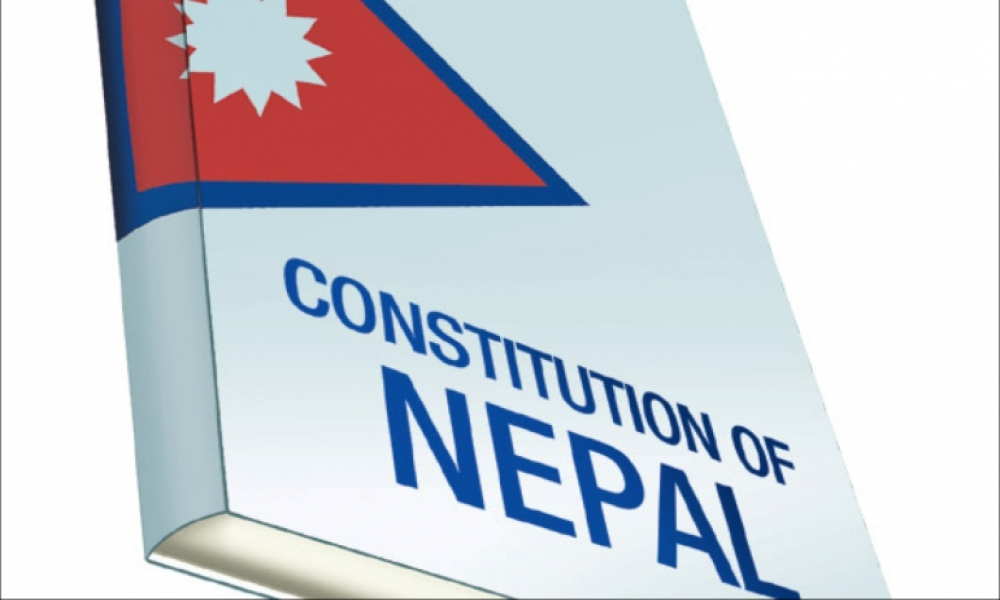Prof Dr Krishna Hachhethu is one of contemporary Nepal's very few intellectuals who are outspoken about federalism. He says, "I don't care whether people call me a casteist or a communal for being outspoken about rights of Dalits, Aadivasi/Janajatis and Madhesis. I am okay with that." Here are excerpts of the interview.
Political parties say they are close to an agreement about federalism and differ only on whether to include five Tarai districts in hilly or Madhesi provinces, your take?
I do not think the bone of contention is only five Tarai districts. The first Constituent Assembly (CA) identified three conditions for federalism. One, identity should be the foremost basis of federalism, which could be followed by capability. Two, it should be guaranteed that target communities will live wherever they have been living while creating federal provinces. Three, number of new federal provinces must be determined by considering social groups, who make up for one or more than one per cent of population. If these three conditions are accepted, status of five Tarai districts in a federal Nepal should not be an issue.
"I don't care whether people call me a casteist or a communal for being outspoken about rights of Dalits, Aadivasi/Janajatis and Madhesis. I am okay with that." Here are excerpts of the interview.
But, how can you rubbish news reports that political parties disagree on status of the five Tarai districts?
It has been reported that the UCPN (Maoist) can accept six provinces. It is nothing but a proposal that the Nepali Congress forwarded to the state restructuring committee of the first CA. The UCPN (Maoist) has also agreed to name new federal provinces like Limbu-Kirant-Koshi or Newa-Tamang-Bagmati. It is again another ruling party (the UML)'s proposal. If the UCPN (Maoist) has agreed to the NC's proposal on number of provinces and the UML's proposal on naming provinces, why there is no consensus as yet? It is a mystery. So, as far as I understand, the five Tarai districts is in no way a bone of contention.
So, what could be that mystery?
One party to the peace process (the NC-UML) has always been reluctant about federalism. They agreed to go for federalism in the wake of the Madhes movement. Initially, federalism was an agenda of Aadivasi/Janajatis. The Maoists took up this issue. So, these three political forces are the real advocates for federalism. The NC-UML leaders have publicly stated that federalism is not their agenda. So, they might be attempting to write a new constitution by putting on hold the issue of federalism. If the issue of federalism is put on hold, it would be difficult to achieve it in the future. Perhaps, that is what the NC-UML believe.
There are rumors that the parties are unable to strike a deal because of the UML Chair KP Oli's ambition to become the next prime minister?
The NC and the UML had reached a seven-point deal after the second CA polls. As per the deal, the NC government should have written a new constitution in one year's time, paving the way for the UML to form a new government. So, there might be close-door negotiations for it. Otherwise, why would they not reach a deal? Why would they take so long time?
Federalism and identity had two stakeholders: Aadivasi/Janajati and Madhesi. But, a new stakeholder has now emerged. That is Khas-Aarya community. Because of the rise of this new stakeholder, the dispute over the five Tarai districts is becoming complicated.
But, there are growing dissents within the UML against the seven-point demand. No?
I would also call it a bad deal. Why show Prime Minister Sushil Koirala an exit door after writing a new constitution? Is it not like punishing him? A prime minister who accomplishes the constitution writing mission should be awarded by giving him more time to lead the government. But, everyone does not think that way. Perhaps, if the UCPN (Maoist) Chair Pushpa Kamal Dahal says he will not opposed to Oli's government, there will be consensus. It is really possible.
Within the NC and the UML, there are two types of leaders. First type of leaders favor identity and federalism at public forums but reject these ideas in their party meetings. Second type of leaders are rigid against federalism and identity within and outside their parties. It has further complicating the constitution writing process.
Do you see relation between accepting or rejecting identity and the dispute over five Tarai districts?
If we were to follow three conditions of federalism, as identified by the first CA, Limbuwan and Kirant provinces can be created in the east. Three of the five disputed Tarai districts (Sunsari, Morang and Jhapa) that lie in the east have historically been a home to Tharu, Rajbanshi, Dhimal and Madhesi people. So, these districts should be in the Madhes province. Historically, Limbus have been living in the hills. So, southern boundary of their Limbuwan province should be drawn down to the east-west highway. Areas south of the highway should be included in the Madhesi province. Same goes for the Kirant province, too. I do not think the Madhesi will disagree with this demarcation.
Do you think the dispute over the Tarai districts escalated because of rise of a new stakeholder?
Federalism and identity had two stakeholders: Aadivasi/Janajati and Madhesi. But, a new stakeholder has now emerged. That is Khas-Aarya community. Because of the rise of this new stakeholder, the dispute over the five Tarai districts is becoming complicated. Some political parties are trying to gain out of this dispute.
This interview was taken from esamata.com
(To be continued tomorrow)


